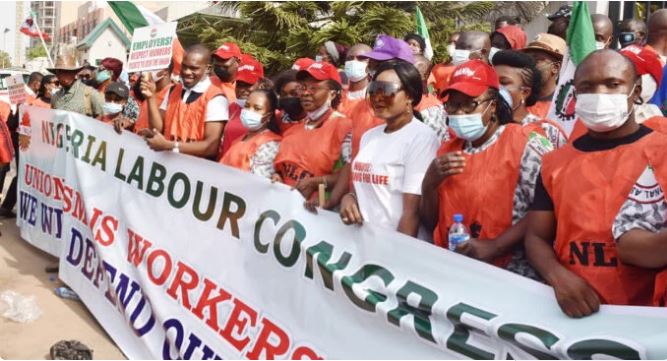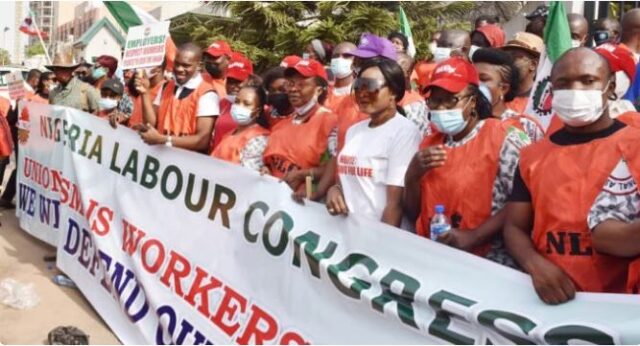
Gift Joseph Okpakorese
Nigerians had in recent times, witnessed a series of bills being pushed forward by the Senate, and the majority of them have gone through first and second readings while some has already taken effects and the consequences are already been felt by the complaint of the masses daily.
In as much as a majority of the leadership, I.e. politicians, the senate, and most importantly, the FG, would argue that these bills are meant to promote the common good it is always a far cry as from that as previous historical experiences of the past has revealed.
With the above said, many schools of thought also deemed it necessary to acknowledge and commend the federal government whenever and wherever they are witnessed to be genuinely interested in putting out laws and passing up bills that eventually turn out to be for the interest of the general public.
Just a few days ago, news sources gathered that a bill striving to fine government workers/ employers as huge as N1 million for labour offenses has officially passed second reading at the senate.
The announcement states that the bill in total is written to amend 11 sections of the labor act of 2004 whereas the existing punishments in the 11 sections range between N100 and N800.
According to the media reporters, the bill was approved on Tuesday 16 March 2021 by the upper legislative chambers after Senator Ezenwa Onyewuchi, who, a representative of Imo east, moved a motion and led a discussion on it.
Observers stated that while senator Onyewuchi was at the forefront promoting a case for the new bill, he also reiterated that the present fines in the current labour law are obsolete and would not be able to protect the interest of workers. In his words;
“The present fines for offenses in the Nigerian labour act are obsolete in context and content,” the legislator said.
“The sanction, penalty, and interest payable under the act are ridiculously low and do not reflect current economic realities. These current provisions cannot provide the needed protection for workers in the labour market.
“There is, therefore, a need to review these penalties/fines upwards to achieve fair and harmonious employee relations.”
Meanwhile, reacting to the current situation and debate on the ground, the senate’s deputy Whip, Sabi Abdullahi, said the modifications perfect and i “timely”.
“I want to lend my support to this very critical amendment in the Labour Act. I feel this amendment is very timely,” Abdullahi said.
A document stating the comprehensive examination of the sections of the labour act the bill was interested in amending as well as the attachment of the new fines proposal, was given as follows;
| 21 | Breach of terms and conditions of employment as it relates to the wage hour, nature of employment, leave, contracts of employment among others | N800 for first offence, N1500 for second or subsequent offences | N500,000 and N1,000,000 |
| 46 | Neglect or ill treatment of workers by employers | N500 | N500,000 |
| 47 | Recruitment of employees without an employee’s permit or recruiters license | N200 for first offence, N2,000 for second or subsequent offences | N500,000 and N1,000,000 |
| 53 | Inducement of apprentice to leave service of employment | N500 for first offence, N200 for second or subsequent offences | N300,000 and N200,000 |
| 58 | Denial of maternity protection and employment of women in underground work or mines | N200 for first offence, N100 for second or subsequent offences | N200,000 and N100,000 |
| 64 | Employment of young persons in unreasonable circumstances e.g industries | N100 | N200,000 |
| 67 and 68 | Breach of regulations of the Minister as they relate to Labour health areas and registration of employers | N1,500 | N250,000 |
| 72 | Offences committed by persons with intent to deceive in the employment of labour) | N1000 for first offence, N500 for second or subsequent offences | N300,000 and N200,000 |
| 74 | Breach of regulations made by the Minister with respect to Labour required in emergencies and for communal obligations | N200 for first offence, N10 for second or subsequent offences | N30,000 and N10,000 |
| 75 and 76 | Contravention of records of wages and conditions of employment; returns and statistics of employees | N200 | N300,000 |
| 85 and 88 | Costs in court and fines for regulations made by the minister | N50 for first offence, N500 for second or subsequent offences | N50,000 and N500,000 |
Hopefully, in the opinion of many Nigerians especially emplloyees, when the bill is finally passed into law it will serve as a deterrent for erring and selfish oppressive employers.







